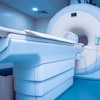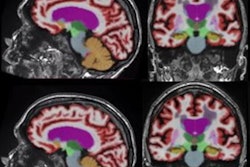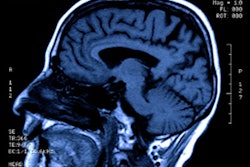
Brain MRI scans show that patients with anxiety progress more quickly from mild cognitive impairment (MCI) to Alzheimer's disease, according to research to be presented at the upcoming virtual RSNA 2020 conference.
The findings suggest that there could be interventions for patients with mild cognitive impairment to mitigate progression to Alzheimer's, wrote a team led by Dr. Maria Vittoria Spampinato of the Medical University of South Carolina (MUSC) in Charleston.
"Anxiety symptoms may hasten progression to Alzheimer's disease in patients with mild cognitive impairment," the researchers noted. "Recognizing and treating neuropsychiatric symptoms is important in the management of patients with early MCI."
Patients who develop Alzheimer's disease often start with mild cognitive impairment, a decline in memory and thinking skills that's more rapid than what occurs with typical aging, the group wrote. Anxiety is often present in people with mild cognitive impairment, but its role in the progression toward Alzheimer's disease has been unclear.
"We know that volume loss in certain areas of the brain is a factor that predicts progression to Alzheimer's disease," Spampinato said. "In this study, we wanted to see if anxiety had an effect on brain structure, or if the effect of anxiety was independent from brain structure in favoring the progression of disease."
The research included 339 patients (average age, 72) from the Alzheimer's Disease Neuroimaging Initiative 2; each had a baseline diagnosis of mild cognitive impairment, and 72 went on to develop Alzheimer's disease. The patients underwent a brain MRI scan to establish baseline volumes of the hippocampus and the entorhinal cortex -- which are areas of the brain key to forming memories.
Individuals were also tested for ApoE4 allele, a common genetic risk factor for Alzheimer's. The study participants' anxiety levels were assessed with two surveys: the Neuropsychiatric Inventory and the Geriatric Depression Scale.
Not surprisingly, Spampinato and colleagues found that patients who developed Alzheimer's disease had lower volumes in the hippocampus and the entorhinal cortex and greater frequency of the ApoE4 allele. But they also had higher levels of anxiety than their counterparts who did not go on to develop the disease.
"Mild cognitive impairment patients with anxiety symptoms developed Alzheimer's disease faster than individuals without anxiety, independently of whether they had a genetic risk factor for Alzheimer's disease or brain volume loss," study first author and MUSC medical student Jenny Ulber said in the RSNA statement.
This connection between anxiety and Alzheimer's disease suggests there may be ways to support patients with mild cognitive impairment, according to Ulber.
"The geriatric population is routinely screened for depression in many hospitals, but perhaps this vulnerable population should also be assessed for anxiety disorders," she said. "Middle-aged and elderly individuals with high levels of anxiety may benefit from intervention, whether it be pharmacological or cognitive behavioral therapy, with the goal of slowing cognitive decline."





















